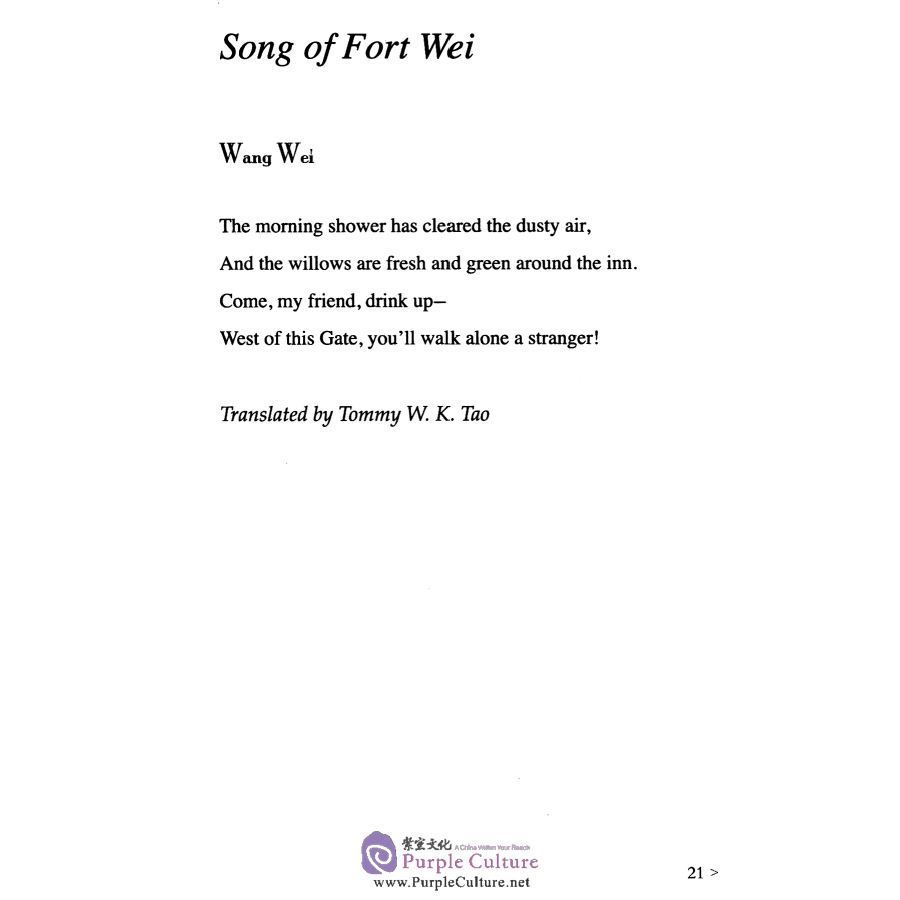Sample Pages Preview
Preface
Poetry is what is lost in translation - Robert Frost
Why would Robert Frost make such an unHnd remark about poetry in translation? I have always loved Robert Frost, and considered him one of my favourite poets of the 20th century. As one who loves to translate poetry,l have thought long and hard about Frost' s remark, and this is what I think he was saying: Too many translators are so devoted either to dictionary definitions of the words in the original, or to recreating the prosodic structure of the originalin the target language, that they forget about reproducing the sublime feeling one gets when reciting the original. In both cases, the problem is that the translator seems to focus more on rendering words or prosody than on recreating the poetic experience of the original poem.
Robert Frost said something else about poetry that contains very good advice for the translator: Poetry is when an emotion has found its thought and the thought has found words." Therefore, the translator should use the words of the original poem as a guide to find the original feeling of the poet, then find similar words and prosodic devices in the target language to recreate that feeling. Most traditional Chinese poetry is what we call "occasional", commemorating any significant occasion, whether it be the joy of meeting an old friend, the sadness of saying goodbye, or the nostalgia of visiting a famous historical site. The occasion may be as grand as a victory celebration or as personal as noticing the first grey hair in the mirror. I view most Clunese poems as a prosodic commemoration of a significant occasion m unforgettable words. I tlunk the challenge of the translator is to recreate the same feelings using unforgettable words in the target language.



